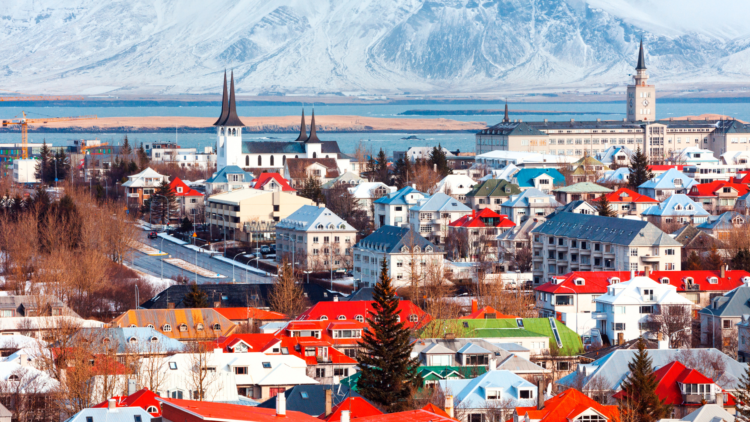The wind sighed and whispered curses.
He turned and looked out at the harbor.
There it was.
The big flat gray Coast Guard ship, docked in exactly the same spot as it had been fifteen years earlier, now huddled behind the massive glass block like a sulking teenager. It was the only thing in sight that Finn recognized.
Last time he was here, they’d given him a VIP tour of that vessel.
Last time he was here, Finn himself was the tip of a mighty spear, the full weight of the US military machine behind him. That was before another decade of continuous war had blunted and corroded that spear. Exhausted it. Corrupted it.
Before Mukalla.
Before Finn was pulled from his team, hustled onto an aircraft carrier in the Persian Gulf, and sent home in disgrace to answer for an atrocity he didn’t commit.
At least, he didn’t think he’d committed it.
Though even now, four months later, he couldn’t be sure of that.
The big gray Coast Guard ship stared back at him.
Last time, he thought. A lifetime ago.
This time, he was on his own.
He glanced to his left, up the coast, then to his right, taking in the measure of the territory.
Iceland was roughly the size of Ohio. You could drive clear around the country in twenty-four hours, if you wanted to. The Ring Road, they called it. Route 1.
Finn didn’t need to drive around the country. He was pretty sure his business was all right here in the capital city. A quarter percent of the country’s landmass, roughly ten miles by ten miles. About the size of Fort Wayne, Indiana, with less than half the population.
Which at that moment included three Americans he was there to hunt. And, once he found them, to engage in a friendly conversation.
Or not so friendly.
That part would depend on them.
He heard a faint disturbance, the slow scrape of feet through the moaning of the wind. He turned and clocked the source: a single human, wrapped in old blankets tied incongruously with a sash of electric blue silk, making his way along a sidewalk in the leeward side of a building.
A white Mercedes van rolled up the empty street and slowed to a stop a few yards past the homeless man. Red Cross emblem on its side. Finn had seen vans like this in a number of European countries, specially equipped to deal with addicts and homeless people, providing food and medical care, sometimes even clean needles.
Evidently they took care of their own here in Reykjavík.
Surviving, as far as Finn could see, was the country’s principal industry. After plunging into that economic sinkhole, so he’d read, these descendants of Vikings threw their bankers in jail, let their currency collapse, took on crippling austerity measures, and had clambered up till they were back on top within a decade.
“The Iceland Miracle,” the article’s writers called it.
Finn had once heard a talk by a think-tank foreign policy analyst who described Iceland as “an unsinkable aircraft carrier in the middle of the North Atlantic.” Unsinkable, perhaps, but not unshakable. Sitting astride a seismic fissure between the two tectonic plates that held North America and Eurasia, the entire country was split in half along the diagonal, like a cut lunchbox sandwich, its two halves pulling apart by another inch every year. They experienced something like seventy earthquakes a day.
No wonder they pulled together.
Nothing like scrabbling a living from an unstable volcanic jut of rock at the edge of the Arctic Circle for a thousand years to breed a little solidarity.
The white Mercedes van collected its charge, then rolled on, vanishing around a corner and leaving the street as spectral and desolate as before.
The wind groaned and wailed.
Finn turned northwest and walked along the coast for a few minutes, past the sea-angling sites and whale-watching sites, the harborside restaurants and farmer’s markets. Everything closed. Everything silent.
In Reykjavík, nothing bad ever happens at Christmas . . .
***
Order your copy of “Cold Fear” today!
Order at least two copies of Cold Fear or Steel Fear (soon to be a streaming series) for the Holidays and receive a limited offer to have your gift recipients receive a personalized cameo style video emailed to them directly from the authors and there’s more.
You’ll also receive an exclusive live Zoom SNEAK PREVIEW where the authors will reveal glimpses into their next book, Blind Fear (spring/summer 2023 release).
Send proof of purchase and your gift recipients name and email to: authors@webbandmann.com
ABOUT THE AUTHORS:
Brandon Webb is founder of SOFREP and the New York Times bestselling author of The Red Circle and Benghazi: The Definitive Report. A former U.S. Navy SEAL whose last assignment was Course Manager for the elite SEAL Sniper Course, he was instrumental in developing new curricula that trained some of the most accomplished snipers of the twenty-first century. Webb has received numerous distinguished service awards, including the Presidential Unit Citation and the Navy Commendation Medal with a “V” for “Valor,” for his platoon’s deployment to Afghanistan following the September 11 attacks.
John David Mann is coauthor of more than thirty books, including four New York Times bestsellers and five national bestsellers. His writing has won multiple awards and been featured in American Executive, Financial Times, Forbes, Leadership Excellence, Huffington, Wired, and CrimeReads. His bestselling classic The Go-Giver (with Bob Burg) has sold over 1 million copies and won the Living Now Book Awards Evergreen Medal for its “contributions to positive global change.”
John and Brandon have coauthored ten books together. Steel Fear, the debut novel in their Finn series, was nominated for a Barry Award and hailed by Jack Reacher author Lee Child as “an instant classic, maybe an instant legend.” Cold Fear is the second book in the series; the third, Blind Fear, comes out summer of 2023.
Visit Webb & Mann here.










COMMENTS